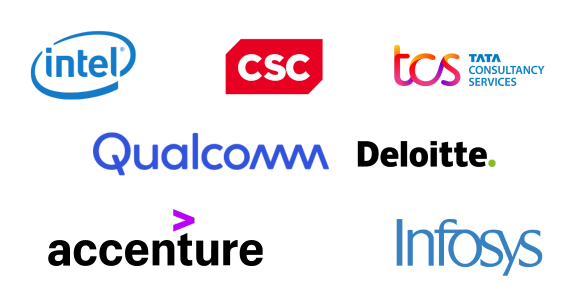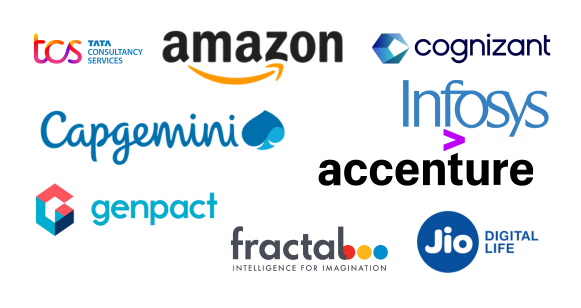Get Trained for Master Certification in Data Science Course
29 DEC 2025
Learn skills from iNeuBytes Master certification in "Data science Course" program which features key tools with Python, SQL, R, Flask, Django and Jenkins.






By 2026, as we move into the age of technology, the need for skilled data scientists will increase rapidly in all industries. More than ever, businesses are using data's power to create predictive models and actionable insights, which help them make strategic choices and direct their expansion plans. PayScale reports that the average yearly salary for data scientists in the US is about $96,491 in 2026, while in India, it is around INR 7.3 lakhs per year. Additionally, in just ten years, the compensation amount quadrupled to INR 14 LPA. Such figures show that learning data science can bring about a good return on investment and make it a good career in this data-driven world of today.

Upskilling in the industry-oriented skills meant for today's job market is of utmost importance with a growing demand for data science with python across sectors.
Navigating the field of data science opens up a wealth of opportunities with some of the world's top companies. Join iNeuBytes Full Stack Data Science Course Online today!

Annual Avg. Salary

Top Hiring Companies

Annual Avg. Salary

Top Hiring Companies

Annual Avg. Salary

Top Hiring Companies
To know the Importance of data science modules and topics covered in 1 Month Certification course. Download the Curriculum Now.
Learning Outcomes
Topics Covered
Learning Outcomes
Topics Covered
Learning Outcomes
Topics Covered
Learning Outcomes
Topics Covered
Learning Outcomes
Topics Covered
Learning Outcomes
Topics Covered
Learning Outcomes
Topics Covered
To know the Importance of data science modules and topics covered in 3 Month Advance course. Download the Curriculum Now.
Learning Outcome
Topics Covered
Learning Outcome
Topics Covered
Learning Outcome
Topics Covered
Learning Outcome
Topics Covered
The module 4 focuses on mastering Big Data ecosystems, with deeper insightful handling and investigation into Hadoop and Apache Spark, and data processing and analysis. Participants will learn how to ingest data using Apache Oozie. Participants will also explore NoSQL databases like HBase, enhance their SQL skills in complex queries.
Learning Outcome
Topics Covered
Learning Outcome
Learning Outcome
Topics Covered
Learning Outcome
Topics Covered
Learning Outcome
Topics Covered
Learning Outcome
Topics Covered
Learning Outcome
Topics Covered
Learning Outcome
Topics Covered
Learning Outcome
Topics Covered
Get Master's Certification in Full Stack Data Science Course Online Live Training with AICTE Approved Internship
Get Master's Certification in Full Stack Data Science Course Online Live Training with AICTE Approved Internship


With its impressive array of 70+ Skills, data science provides valuable insights from data, Informed Decision-Making,Predictive Capabilities, Risk Management, Innovation and bolster business success.
Containerization
Virtualization
Data-Cleaning
Data-Interpolation
Geospatial-Analysis
Hypothesis-Testing
Non-Parametric-Statistics
Time-Series-Analysis
Bayesian-Inference
Stream-Processing
Distributed-Computing
Data-Partitioning
Data-Warehousing
Data-Lake-Management
Feature-Engineering
Dimensionality-Reduction
Text-Processing
Semantic-Analysis
Ensemble-Learning
Gradient-Boosting
Deep-Learning
Clustering
Association-Rules
Generative-Models
Convolutional-Networks
Recurrent-Networks
Transfer-Learning
Hyperparameter-Optimization
Microservices
Continuous-Deployment
Unlock the full potential of your data with Data! We cover 48+ Tools/software, Download Advanced Data Science Curriculum to know more.















Projects provide practical application of learned skills, enhancing understanding and retention. Here are some sample projects:

Practice Essential Tools

Designed By Industry Experts

Get Real-world Experience
 |
Other Coaching Institutes | |
|---|---|---|
| Teaching Methodology | Live Online Comprehensive, interactive sessions, practical examples, hands-on exercises | Mix of theoretical lectures and practical exercises with pre-recorded classes |
| Course Content | Designed by Industrial Specialists based on Top MNC Recruitment Standards | Not based on Recruitment standards |
| Trainers | Alumni of IIT & Top MNCs such as Infosys, IBM and also had Ph.D Experience | Limited Experience |
| Student Support | Dedicated support through online forums, Q&A sessions, personalized guidance | Support availability may vary |
| Flexibility and Convenience | Flexible course schedules, online learning options | Varies, some offer fixed schedules, differing online learning options |
| Learning Resources | Access to a variety of learning materials, such as e-books, practice exercises, and video tutorials | Limited Availability and quality of learning resources |
| Success Rate | Track 1500+ record of student success, testimonials, and alumni achievements | Success rates may vary and depend on various factors |
| Feedback and Reviews | Positive student feedback and reviews on the website | Reviews and feedback may differ among coaching centers |
| Soft-skills Training | ||
| Portfolio Preparation | ||
| Resume Preparation | ||
| Mock Interviews | ||
| Personal Branding |




















Get inspired by these stories.

Data Enginner

Ineubytes Data Science Course was better than I expected and helped me progress in my career. Modules were easy to understand and well-planned. The Live training gave me the confidence I needed to get my first job in data science.

Data Analyst

I worked on projects and code to get better. Instructors who are knowledgeable and willing to help. This course is for people who work with data.

Data Analyst

Learning about data science was great. The study materials are well-organized and interesting. Live training with seperate doubt query session was very great and helped me alot to practise.

Data Scientist

I took 6 months data science course and currently i was in training. Till date, i have mentor and tutor support who have guided with patience and iam looking forward more to learn. I'm so glad I took this course!

ML Engineer

The tutors were very experienced and made the modules and topic very easy to understand and enjoyable to learn. I would highly recommend this course to anyone looking to enhance their skills.